17 Very Learnable Seasoning Tricks That Will Make Your Next Dinner Guests Ask "When Did You Get So Good At Cooking?"
When people ask me how they can become better cooks, I tell them one thing, and one thing only: learn how to season your food properly, and the world — or kitchen, at least — is your oyster.
Food Network / Via giphy.com
And it's not easy! As a food writer and recipe developer, I basically cook for a living, and trust me: I learn new hacks and tricks for seasoning my food more consistently every single day, so I'm sharing my favorite tips that are basically guaranteed to make food taste better. Whether you're just starting out on your cooking journey or already a passionate home cook, sometimes the best thing you can do is revisit the basics.
1.Taste the dish you're preparing throughout the cooking process, and season as you go.
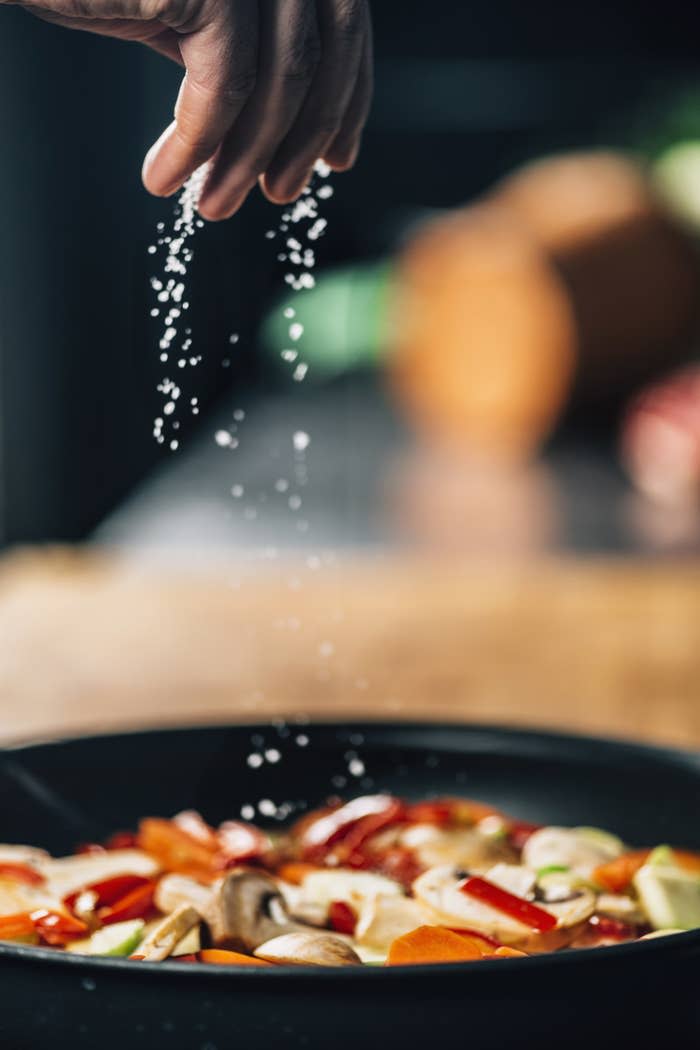
If you learn anything from this post, let this one be it. When recipes instruct you to "salt to taste," they really mean it. Fun fact: many recipes you'll read list the bare minimum amount of salt you'll need to make it taste just OK, since a common critique of many recipes is that they're "too salty." In other words, if you're aiming to make a dish taste perfectly seasoned to your own lil' tastebuds, some experimentation will likely be required.
Start with the amount of salt the recipe you're cooking calls for, and give the dish a taste every time you season it — ideally throughout the cooking process. Making a ragù is a perfect example of what appropriate seasoning looks like throughout the cooking process. You're not dumping a handful of salt into the finished sauce — you're seasoning the meat as it browns, the vegetables as they gently sauté, and salting the added liquid to taste. That way, the salt will penetrate each and every item you add, as opposed to just dissolving into the milk, broth, or puréed tomatoes added. For this reason, dishes that are salted consistently when new ingredients are added taste far more balanced than when you just dump a whole lot of salt in at the end.
2.Learn the difference between salt varieties and know when to use them.
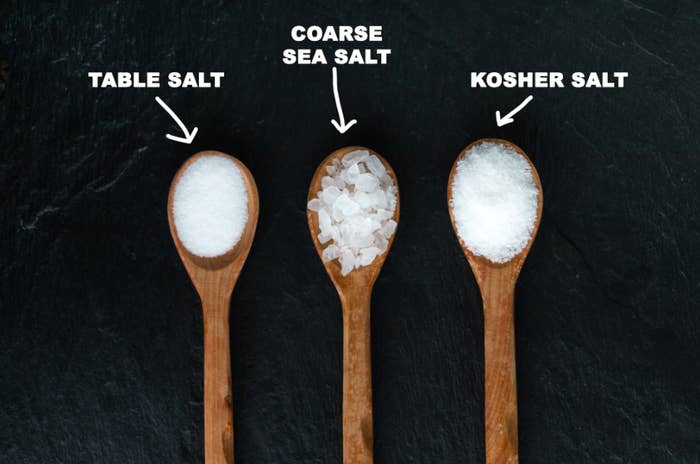
All salts are not created equal. Kosher salt has crystals that dissolve quickly, and is considered the "standard" in most recipes. This is a great go-to salt for just about everything. Table salt, on the other hand, is much finer and a little goes a long way. This is why people get into tricky territory when they're following recipes and salting according to them — if you're using table salt in place of kosher salt, your dish will come out much saltier than intended, since table salt is "saltier" than kosher salt to begin with. For this reason, I always recommend that folks keep a box of kosher salt on hand to use with anything they cook. You can always add more salt, but it's tricky to remedy an overly-salty dish. (That said, the next tip can help if you find yourself in that unfortunate situation.)
Of course, I'm not saying that you shouldn't keep table salt around...or sea salt, for that matter. If you want to keep a salt shaker on your dinner table, by all means, go for it! Just know that when it comes to the actual cooking process, you'd be better served by using kosher salt. Sea salt is a great option to keep on hand, too — the flaky varieties, especially — for finishing a plated dish with a bit of sophistication and texture.
3.When using fresh herbs, make sure you're adding them at the right time. Spoiler alert: this will differ from herb to herb.
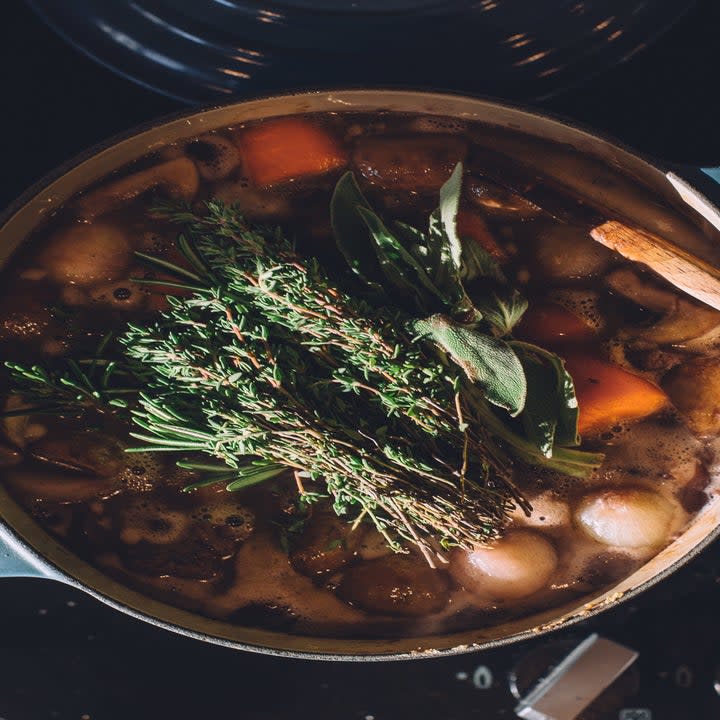
Some herbs are downright hearty, with substantial, tougher leaves — think: oregano, thyme, and rosemary. Others are soft and delicate, like basil, parsley, or chives. When working with fresh herbs in general, here's a rule of thumb that can be used in most cases: hearty herbs should be added earlier in the process, and delicate herbs should be added just before serving, or as garnish only. For the same reasons that you wouldn't normally garnish a dish with tough leaves of fresh rosemary, you wouldn't add delicate, fresh basil to a soup or stew at the very beginning of the cooking process. Hearty herbs need a longer time to infuse their flavor into the dish you're making, while delicate, tender herbs should be used as a bright pop of flavor at the very end.
4.Parsley is a perfectly fine garnish for many dishes, but it's not meant to be sprinkled on anything and everything you make for presentation's sake.
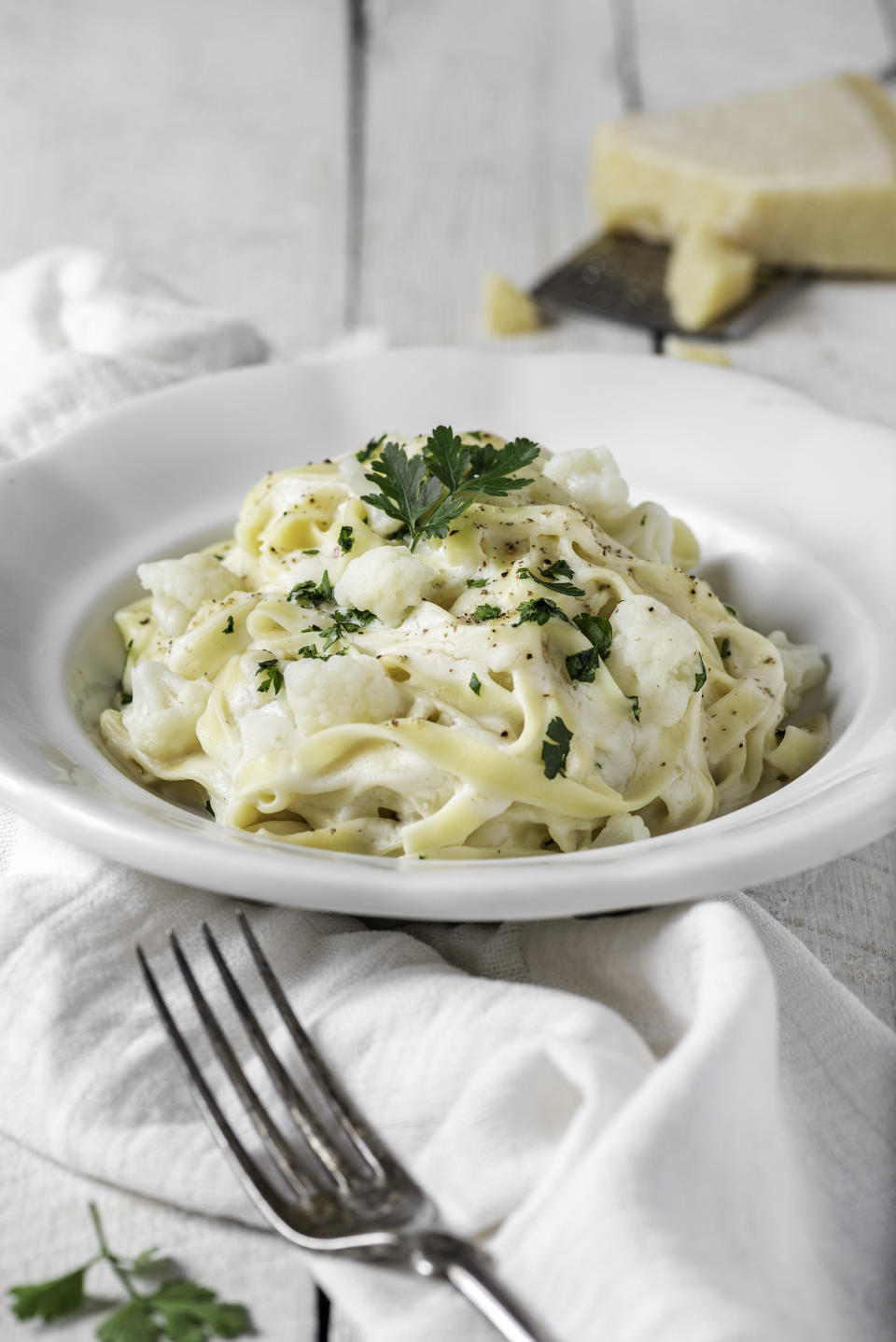
I don't know about y'all, but I feel like frequenting chain restaurants while growing up taught me that making a dish look "presentable" meant showering it in chopped parsley. I'm happy to report that this is far from reality, and as far as seasoning goes, garnishing universally with chopped parsley is likely doing your dishes more harm than good.
Fresh parsley has a distinct flavor and aroma. For many folks, parsley hits many of the same notes as cilantro — but in a much milder way. To that end, not every dish is going to vibe with a sprinkling of parsley. If you're working on your presentation skills, consider other types of garnish that aren't so pungent, or experiment with other delicate, soft herbs, like dill, basil, or chives. Sometimes, even a sprinkling of flaky sea salt and a drizzle of olive oil are all it takes to elevate the way a dish looks.
5.When making pasta, salt that pasta water generously — and then salt it some more.
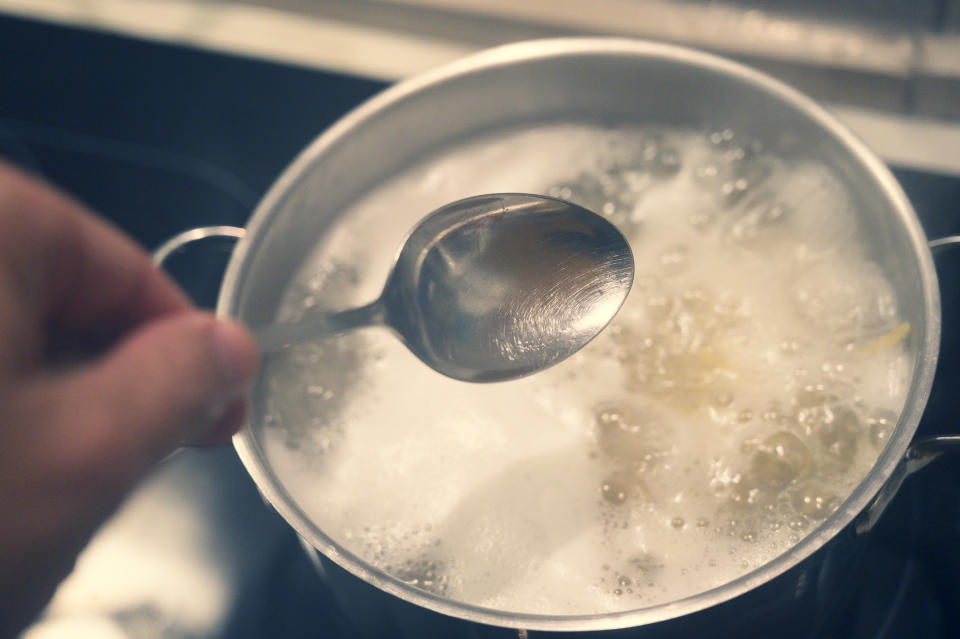
Salting your pasta water like your life depends on it is the secret to restaurant-quality pasta dishes every single time. When you don't salt your pasta water heavily enough, you'll end up with bland noodles. In order to remedy this, you'll need to over-season the sauce, which is a sure-fire way to end up with a dish that tastes noticeably salty with each bite. The easiest way to prevent this? Salt the hell out of that pasta water. Remember that the vast majority of that salt will wash down the drain with the extra pasta water, so no, you're not consuming a literal handful of salt!
It's hard to go overboard here, so next time you're cooking up a batch of pasta, go to town with that salt. As beloved chef and author Samin Nosrat says, salt your pasta water "generously with salt until it tastes like the summer sea."
6.If you over-season your dish, add more ingredients to it.
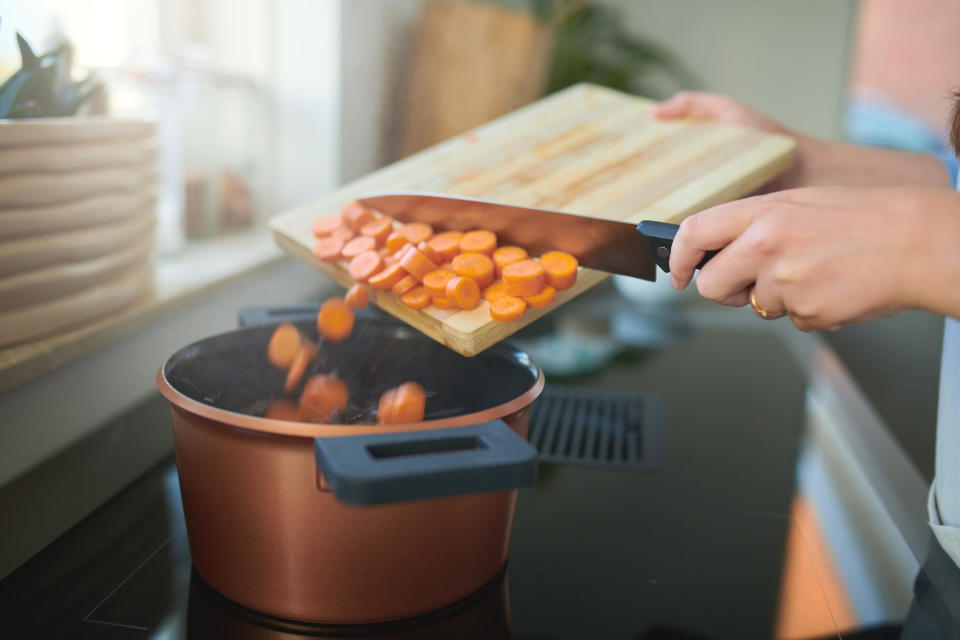
It might seem obvious, but the easiest way to re-balance a dish that's too salty is to add more of the ingredients you've already used. If you add too much salt to a soup or stew, pour in some more broth until it tastes appropriately seasoned. Did you totally bathe your mashed potatoes in salt? Add another potato. The more volume you add to a dish, the lower the percentage of salt you'll ultimately end up with. If you've gone totally overboard, you can also try adding a spoonful of honey or a sprinkling of sugar, or a splash of acid (like a squeeze of lemon or a drizzle of balsamic vinegar). But IMO, adding more is the most dependable way to go.
7.Season from high above for more even coverage.
AMC / Via giphy.com
There's actually a reason why chefs season their food from so high up. It helps evenly distribute the seasoning and makes sure you don't accidentally over-season one area and under-season another. This is especially helpful for items like beef, poultry, and fish, which all benefit from an even layer of seasoning.
If you want to feel like a real pro, start keeping your salt (kosher salt, preferably) in a ramekin or salt bowl. It'll make a huge difference in your cooking, too — when you use a salt shaker, it's hard to determine exactly how much salt you're adding to something, but by using your fingers (or a measuring spoon, if you'd prefer), you'll start to develop a feel for exactly how much you should be salting something.
8.Black pepper shouldn't be added to everything.
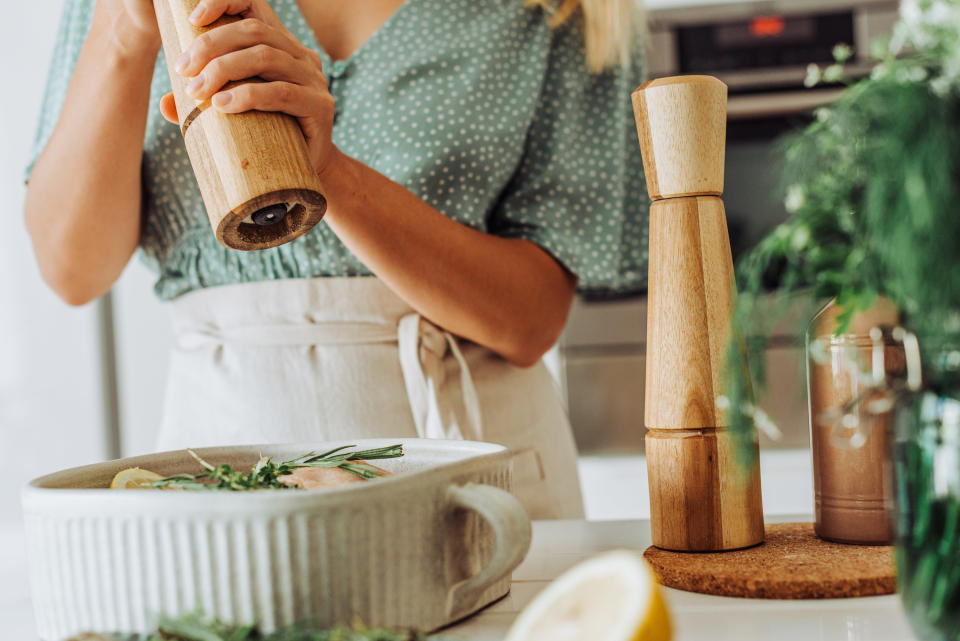
We're conditioned to add pepper to basically everything we eat, thanks to those little salt and pepper shakers that sit proudly on many of our dining tables. Molly Baz once said that "salt makes food taste more like itself; black pepper makes food taste like black pepper," and...Molly Baz was right. To put it simply: salt is a seasoning, and black pepper is a spice. Seasoning your food with salt won't alter the flavor profile of the dish you're making, but black pepper will.
Next time you reach for your pepper grinder, pause, and ask yourself if that dish really needs some freshly-cracked black pepper. If you're making a creamy pasta dish or punchy salad dressing, it totally might! But that delicate piece of fish or those perfectly sautéed veggies might be better off without that floral, spicy bite.
9.Speaking of black pepper — when it is appropriate to add, know when to use finely ground versus cracked varieties.
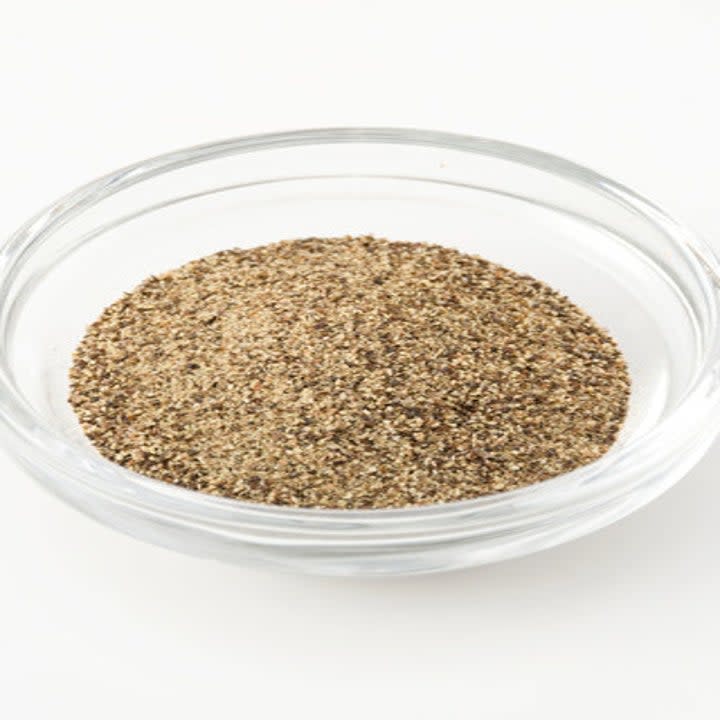
The type of black pepper you use can completely change the flavor it imparts. Finely ground pepper — the kind that looks like dust — is best used for things like sauces. It's pretty strong and a little goes a long way. Coarse ground pepper, on the other hand, is best for finishing dishes at the table or seasoning proteins. The flavor is usually less sharp and it doesn't infuse into the entire dish.
For most dishes, freshly-cracked ground pepper should be your go-to. You know how freshly-ground coffee tastes SO much better than the kind you buy already ground? Black pepper is the same way. Instead of buying a single-use pepper shaker or grinder every time you run out, consider investing in a reusable pepper grinder and replenishing with bulk peppercorns, as needed. In the long run, it'll be a lot cheaper, and the food you make will be a whole lot tastier.
10.Consider using whole spices (instead of the pre-ground variety) to easily dial up the flavor notes of whatever you're cooking.
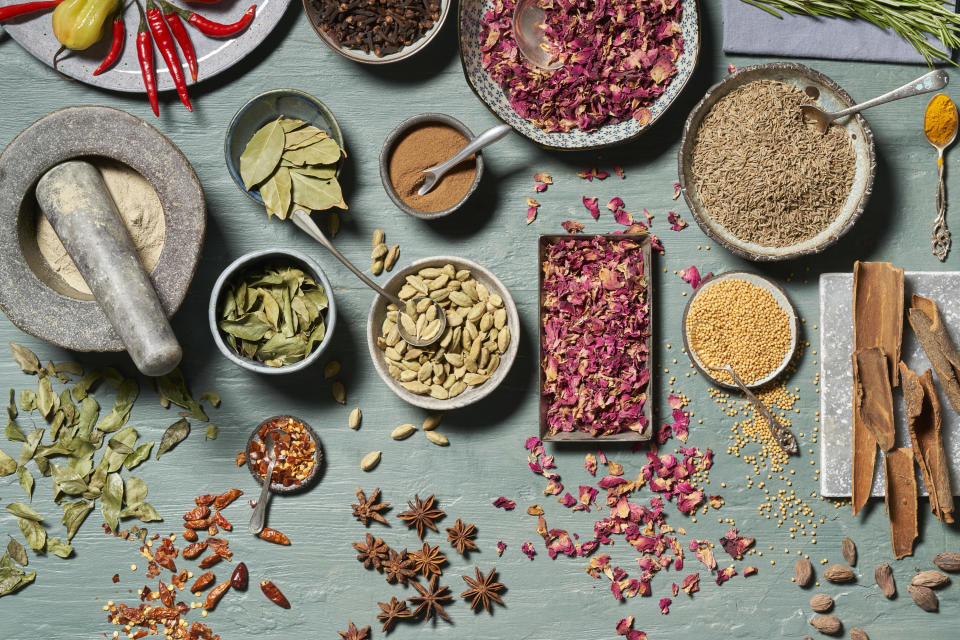
If your budget allows, experiment with using whole spices. There are a couple of reasons for this, but the most compelling is that your food will taste more vibrant, with distinct layers of flavor. The problem with conventionally-ground spices is that they move past their peak freshness more quickly than you'd think. The jury's out on exactly how long your ground spices will last, but most folks agree that peak freshness ends after 3–6 months. (BRB as I go clear out my spice cabinet.) Whole spices, on the other hand, last a lot longer — generally for more than a year, but if you want to use them past that time frame, I won't judge you. Like freshly-cracked pepper, whole spices lend incredible flavor to the dishes you cook since spices taste best just after they're first ground.
Grinding your own spices is super easy, too. A bladed coffee grinder is the easiest (and cheapest) way to go here, for maximum ease, but a basic mortal and pestle will work nicely, too. If you're using the former, try grinding up a few spoonfuls of white rice after grinding your spices, and you'll start with a totally blank slate the next time you need a batch of freshly-ground spices.
11.Remember that cold foods require more seasoning than hot foods.

If you've ever had a bite of leftovers straight out of the refrigerator (trust me, we've all been there) and think to yourself, "huh, this doesn't taste right," you're not alone. Many people think that you're able to taste hot foods better than cold, so when you're preparing a dish that's meant to be eaten cold or at room temperature, it's a great idea to season with more salt than usual. A good example, and one that's often overlooked, is salad. Along with dressing, adding an extra pinch of salt can help make the flavors pop, and you'll avoid Boring Salad Syndrome forever.
12.Don't forget to season certain foods with sugar, too.
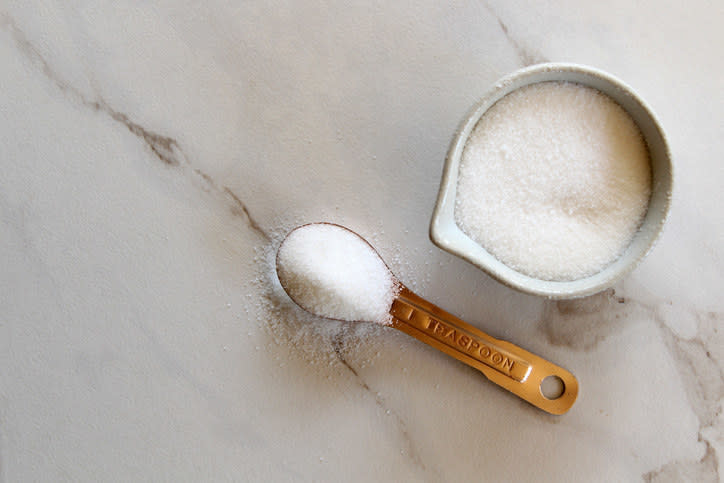
Making a good marinara with bad tomatoes is hard — but if you add a pinch of sugar, the sauce will taste like it was made with perfectly ripe ones. In the same way that a pinch of salt can make the flavors of sweet foods pop (think: salted caramel or chocolate chip cookies with a sprinkling of flaky salt), sugar can deeply enhance the flavors of savory foods. A drizzle of honey in a homemade vinaigrette can take your salad from "meh" to "oh my god this is the best thing I've ever tasted," and just a touch of sugar can make ordinary roasted carrots, beets, or cherry tomatoes a crowd-pleasing hit.
13.Pre-season meat with salt ahead of time, so it has time to flavor and improve the overall texture.
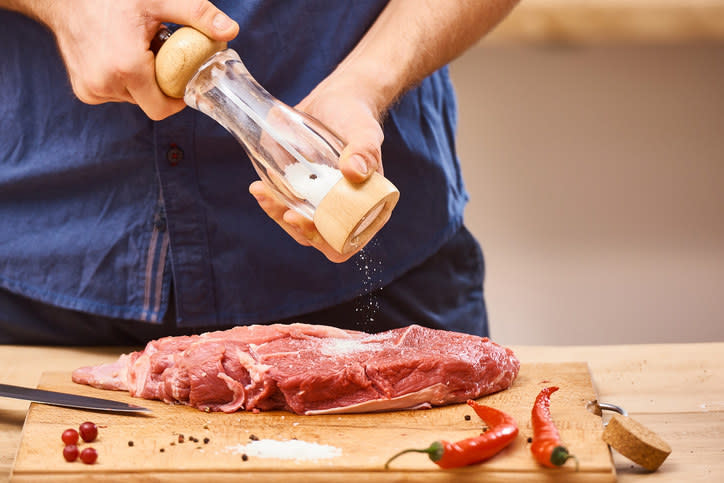
There are several reasons why you should season your meat at least a few hours before you plan on cooking them. First, it gives the salt enough time to penetrate the meat and season it all the way through. Second, the salt also breaks down some of the proteins that can make meat tough — and it actually helps the meat stay moist via reverse osmosis. It's a true win-win. (Science, huh?)
Just to say it — this trick does NOT apply with fish, folks! Salting seafood ahead of time can negatively impact textures and mouth feel, so remember to season anything that comes from the ocean right before cooking it.
14.Don't be afraid of using flavor enhancers like nutritional yeast, liquid aminos, or MSG.
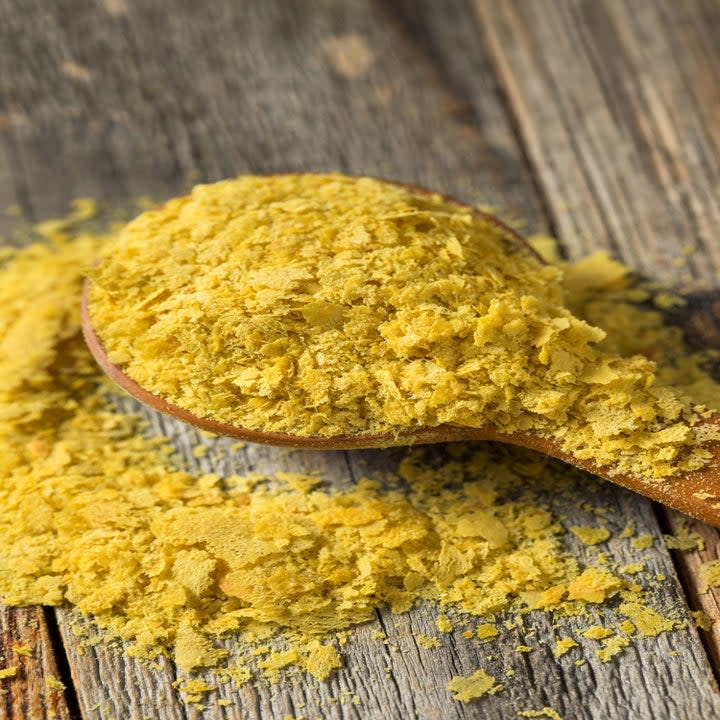
Seasoning isn't just about salt and spices. Ingredients like nutritional yeast can transform the flavor of a dish and add savory notes, especially when it comes to adding a "cheesy," nutty flavor without any actual dairy. (This is exactly why you'll find nutritional yeast in the ingredients of many plant-based "cheese" sauces or casseroles.) Similarly, liquid aminos or MSG can add a pop of umami flavor without the sodium content of soy sauce, so keep some on hand for those moments when your food needs a little touch of something extra.
15.Don't forget to season your food with acid, too.
Everybody knows that salt plays a crucial role in cooking — but not everyone knows the importance of acid. Acid helps elevate flavors — and just like salt, it's an important part of balancing a dish. If your food tastes flat but you've already salted it, try adding a splash of wine, vinegar, or citrus to amp things up.
16.Be careful not to burn any spices you pre-season with when searing proteins.
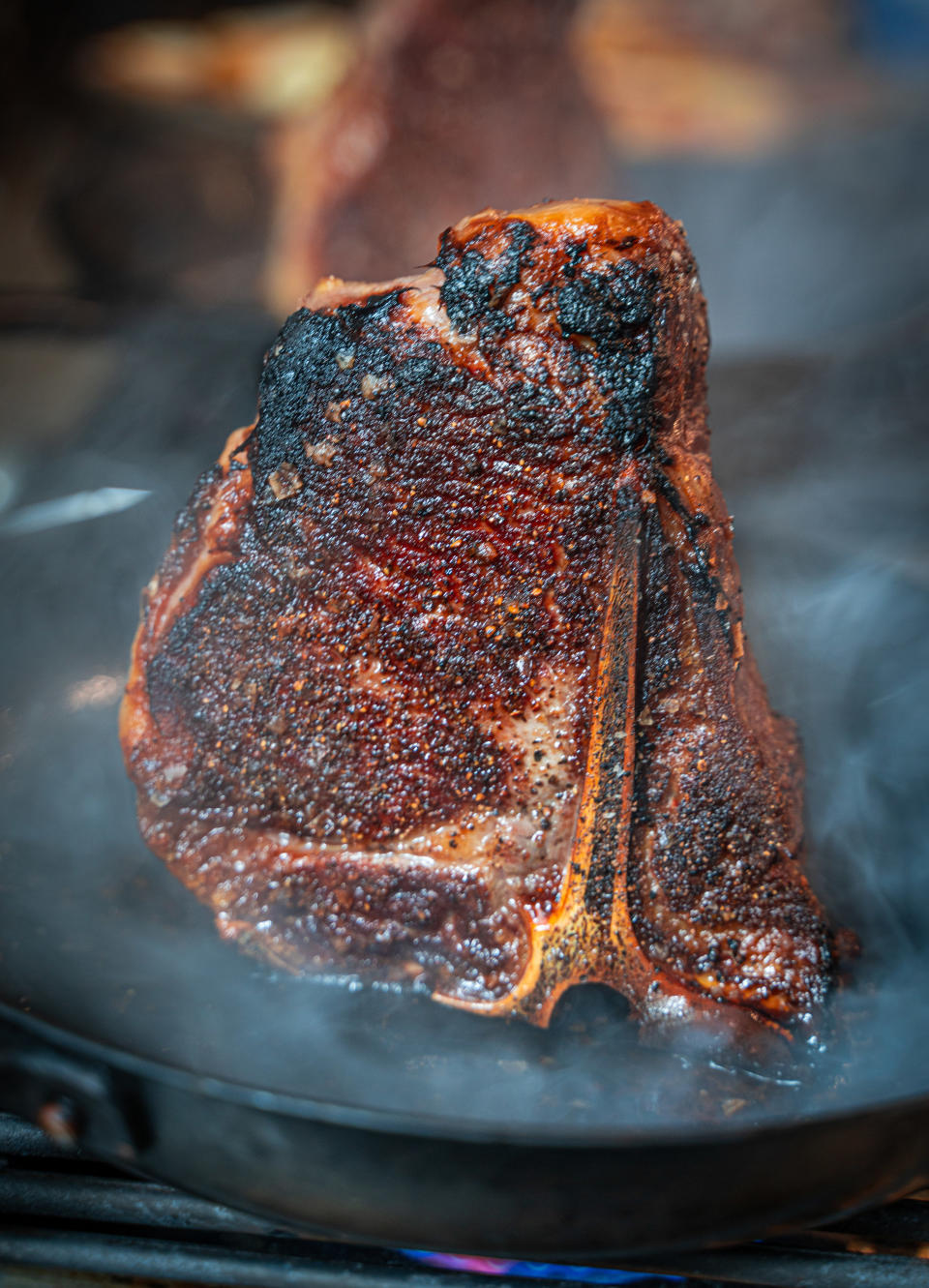
This is especially true for any proteins that you'll sear over super high heat, for a perfectly golden-brown crust. Many common spices burn pretty easily over high heat, and in most cases, bitter notes can develop in whatever you're searing. Black pepper is the biggest culprit here (by now it probably seems like I'm hating on black pepper, but I promise...I'm not!), so when in doubt, add pepper or any other spices you're using after the searing process is done.
17.Citrus zest can make just about anything taste even better.
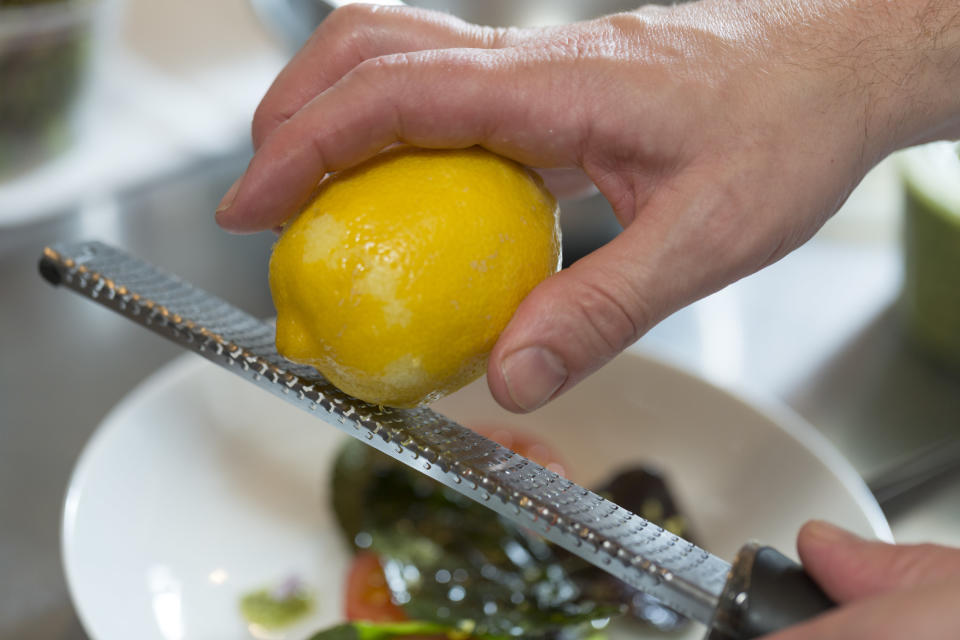
I'll put lemon or lime zest on just about everything I make, and after you've tried it out in your own cooking, you'll know why. In instances where citrus juice would be overpowering (or in creamy sauces where the addition of acid could curdle the dairy), I find lemon zest to be a subtle and incredibly adaptable hit of brightness that can elevate basically any dish. Add some lemon zest to your dressings, sauces and condiments for a gentle note of citrus, or try it on seared meats or starchy vegetables to keep your dish perfectly balanced.
You can totally use a handheld box grater to zest any kind of citrus, or use a dedicated zester — but I find a microplane to be the unmatched MVP when it comes to zesting citrus perfectly, without any bitter pith. It's also the perfect tool for finely grating hard cheeses, so you'll get plenty of use out of it.